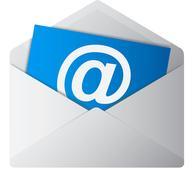 You may have heard it said that email is dead. But, don’t believe it. According to a report in Harvard Business Review (June 2013), based on a survey of 2,600 workers in the USA, UK, and South Africa, people continue to spend four hours of every working day dealing with email. The reason? They like it, trust it, and find it an effective collaboration tool.
You may have heard it said that email is dead. But, don’t believe it. According to a report in Harvard Business Review (June 2013), based on a survey of 2,600 workers in the USA, UK, and South Africa, people continue to spend four hours of every working day dealing with email. The reason? They like it, trust it, and find it an effective collaboration tool.
Yet, it’s far from perfect. Email also frustrates workers because three-quarters of emails are junk. People find their time wasted with unimportant ads, social-media contacts, and announcements. You go to bed at 10 p.m. with no emails and the next morning there are 43 new emails waiting to be answered. At work the sound of a beep coming from your smart phone alerts you to another email interrupting your train of thought. Then at lunch you encounter a co-worker who asks why you haven’t answered the email they sent you that morning. It’s maddening.
So, how much do we really use email? No survey on the use of email by pastors is available, but let’s assumed that pastors are similar to other working professionals. If that assumption is correct, then pastors spend about 111 days a year dealing with emails! Allowing for vacation and other time away from ministry, that’s half of a pastor’s working year. Thirteen percent of a pastor’s time is spend writing emails, 15% reading them, and 22% searching, archiving, and managing them.
Email is, though, a very effective collaboration tool. It is the most used tool to connect with other team members, with leaders using on average nineteen distribution lists. When asked to name the tasks for which they use email, leaders noted most often exchanging documents (76%) and sending information to groups (69%),
Even with the advantages of using email for collaboration, 11,680 emails on average are sent to an individual worker each year. Fortunately, most of these are blocked from our inboxes. Of the emails that make it to our accounts, 14% are considered critical to our work, 28% essential, 24% functional, 15% low level work, 10% personal, and only 8% spam. But this doesn’t count our personal email accounts at home.
So, how can email be reduced so that it doesn’t eat up half of our working year? Here are a few suggestions that others have found helpful:
- The most important, don’t send out so many emails yourself. It’s obvious that we can’t control the number of emails we receive, but we can control how many we send, and research has found that the fewer emails we send the fewer we receive. Often, when an email is sent, it is assumed a reply is necessary, which ends up in a back-in-forth ping pong effect of one email after another. By not forward emails unless absolutely necessary, limiting the number of recipients to all emails, and choosing a different form of communication to accomplish the task at hand (say, a phone call), the total number of your emails may be reduced from a low of 20% to as much as 50%. That’s a huge savings in time, which can be added to your productivity.
- Don’t answer emails right away. When you get into the habit of answering emails quickly, it tells others that you’re available immediately. This results in others asking for assistance even when they don’t really need it. They think you’re readily available, and it’s so easy to just send an email off to you that they do so without thinking about how it affects your time. By not answering right away, it teaches others that your time is valuable, i.e., too important to be answering emails quickly. Thus, it’s good to set aside a block of time each day to read and answer emails. Experts suggest that no more than 25% of your workday should be given to reading and answering emails. So, why not set aside two hours a day, e.g., between 8-9am and 4-5pm for emails? Hold rigidly to that schedule and you’ll get more done.
- Put an automatic announcement on your account to let others know you only answer emails between certain times of the day. This is only courteous, but again it trains others that your time is important.
- Have another person read and categorize your emails before you look at them. For example, your administrative assistant could read your emails and flag them as A=Urgent must be answered today, or B=Important must be answered this week, or C=Interesting could be answered. Then read and answer all the A’s, some of the B’s, and scan the C’s later.
- Reply to every person just one time. For example, at the end of the day you may have received several messages from one person. Just answer that person one time by including answers to all of his or her previous emails in one reply. Of course, be sure to use the “reply all” button when answering group emails.
- Get your mind and ears off your inbox by turning off all automatic new email beeps, songs, whistles. If you don’t know there are new emails, you’ll find it easier to focus on work without the emotional tug to investigate what’s behind the incoming alert.
- Let the sender know you’ll get back to them later for messages that need some research. Then flag the message with a specific color for research the following day or a time you set aside for such activities.
- Answer the easiest emails first. This will get you into the mood of answering emails and actually make the harder ones flow a bit faster.
- After a quick scan, do something with at least one of the emails marked C=Interesting each time your review your emails. Answer it, file it, or trash it. Just read one of the emails marked C each time you open the inbox. At the end of each week move all items marked C into a file folder marked Old Cs.
- Tenth, once a month trash the entire C folder. If the emails were not originally considered A=Urgent or B=Important they most likely are not something you need to spend time on anyway. If the sender thinks their message was important, they’ll very likely resend it allowing it to go through your selection process again. Perhaps the second time it’ll end up marked an A or a B.
Whatever you do, design a process for dealing with emails. If you don’t, rest assured your emails will deal with you.
 Biola University
Biola University



